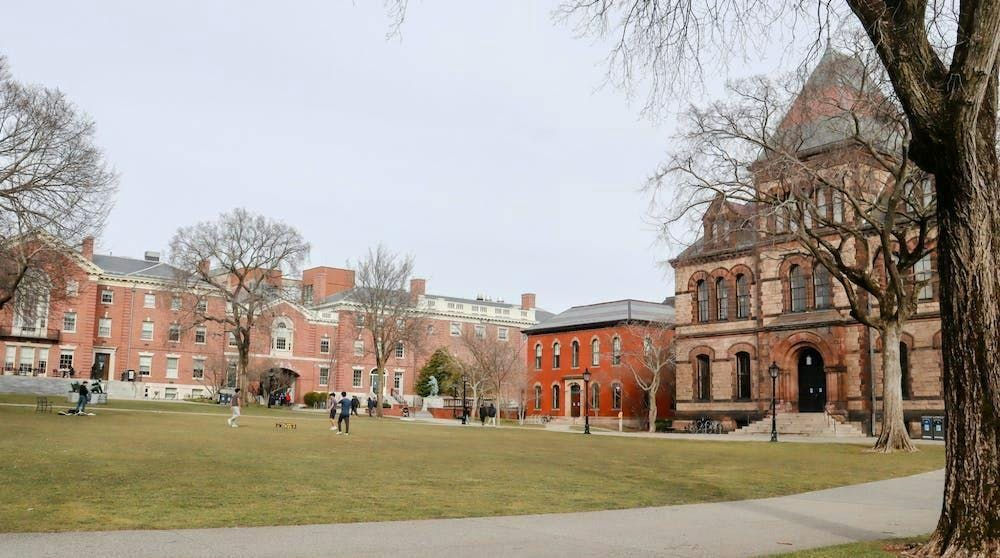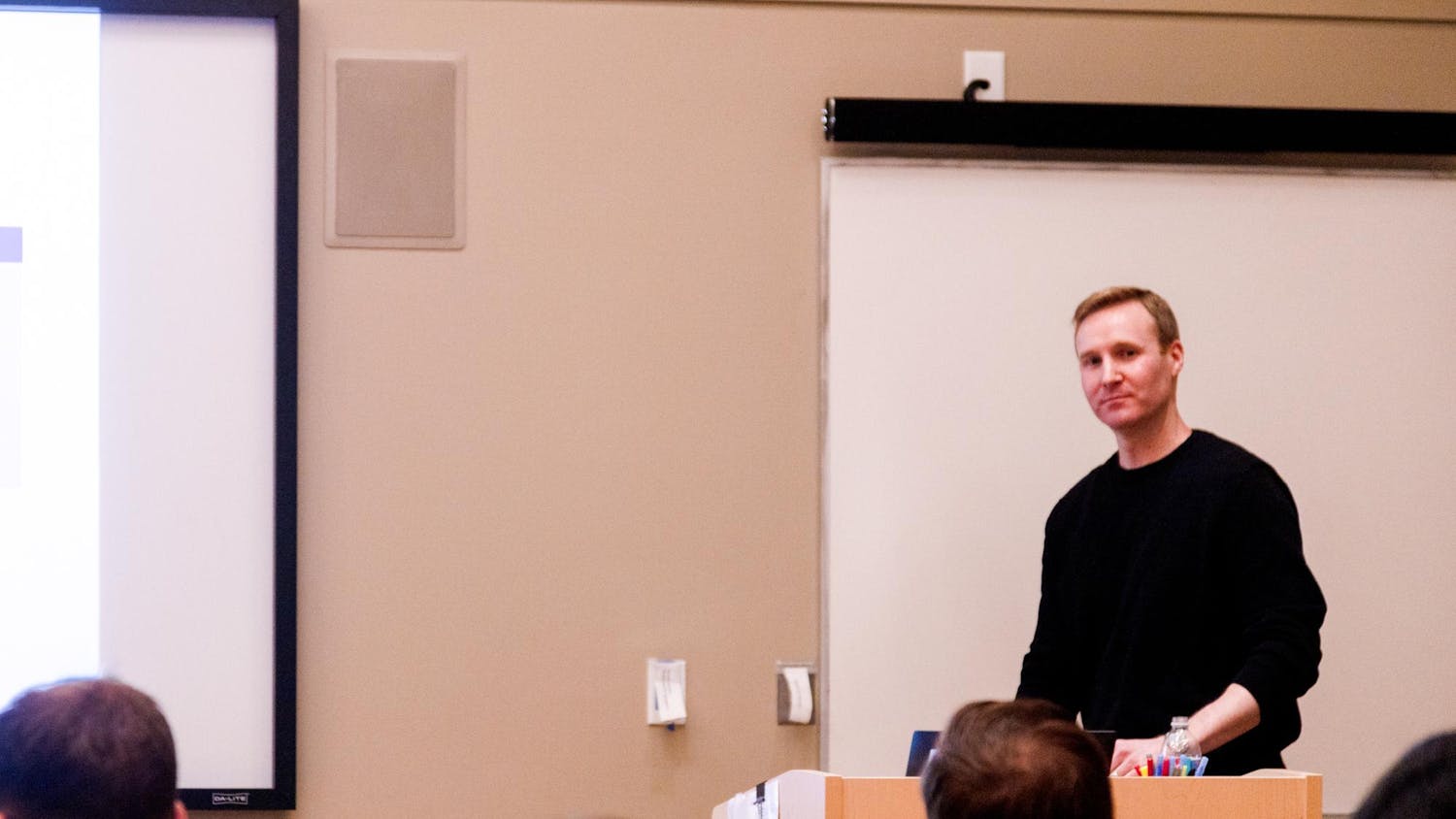For the 2022-23 academic year, Fulbright Foreign Language Teaching Assistants are helping undergraduate students improve their language skills in multiple University language programs.
The FLTA program provides international educators with the opportunity to teach a language and share their culture at an American university over an academic year, according to the program’s website.
Two members of this year's FLTA class at Brown are Samwel Luhaga, who teaches Swahili and Reetika Negi, who teaches Hindi.
According to Negi, the teaching assistants have a strong bond. They often gather in the Center for Language Studies and “chat about what happens in each of our (home) countries,” she told The Herald.
Though each teaching assistant said they have had different experiences so far, both of them said they have enjoyed the chance to live, learn and work in Providence and the United States.
Samwel Luhaga: Supporting Brown’s Swahili program
Luhaga, hailing from Tanzania, knew that the FLTA program would connect him with “other people in the field of teaching.” He first applied for the opportunity in 2017, and after applying multiple times, was accepted to teach Swahili at the University this year. From 2018 to 2022, Luhaga taught English in secondary schools in Tanzania.
The University’s Swahili program is relatively small: Luhaga helps teach eight students in the beginner class and one student in the intermediate class. He told The Herald that he hopes to expand the program before his return to Tanzania. In addition to his presence in the classroom, Luhaga has also delivered two guest lectures for other language programs about Swahili greetings, clothes and food.
Luhaga said he was unsure about leaving Tanzania for the first time in his life, recalling “two or three sleepless nights” before departing — and added that the adjustment to life in Providence was “a bit lonely.” Still, Luhaga told The Herald that he is glad he decided to be an FLTA.
“It takes one kind of bravery to want to take this journey, but it’s worth doing it to have a lot of experiences,” he said.
Once he entered the classroom and started working more closely with students, he also said he concluded that “teaching is interesting when you have committed students.”
Luhaga said that institutional resources like the Center for Language Studies have helped him “feel just at home.” He especially enjoys the weekly open hours because he interacts with “different students from different cultures and languages.”
Currently, Luhaga is also developing a strategic plan for an education non-governmental organization, AfrEd, which will offer digital STEM content and technological infrastructure resources in Tanzanian classrooms.
Reetika Negi: Sharing Indian culture and Hindi
After Negi completed her PhD in linguistics back home in India, she was still eager to learn and experience more. For Negi, being an FLTA was an opportunity to “not just learn the culture and the life (in the U.S.), but also to experience university life.” Negi immediately noticed differences between her personal educational experiences in India in comparison to Brown.
According to Negi, the University has a significantly broader range of resources than the institutions she attended in India. She also noted that classes are more interactive at Brown, with students encouraged to ask questions. Negi said that she “feels that difference and that energy” here on College Hill.
As a teaching assistant in the Hindi program, Negi has shared her cultural background through several hands-on activities: She brought in Indian clothes, jewelry and currency to supplement her class presentations so students “could see them and touch them and use them.” Negi also hosted a small Diwali celebration with snacks and henna cones to encourage students to engage with Indian culture.
While she said the first couple of weeks in Providence proved challenging, Negi said that finding community among the other FLTAs helped her adjust. She recalled conversations with another FTLA in which she realized they share many cultural values, which in turn have brought them closer together.
While Negi is unsure of her plans after the FLTA program, she currently intends on applying to both postdoctoral degree programs and professorship opportunities. Before launching into the next phase of her career, she wants to “take a little break and relax at home.”
Through its ups and downs, Negi has valued her experience in Providence.
“The first semester, we were trying to settle here,” she said. “Now, we’ve settled in and feel comfortable here, (and) we have to go back. That’s something that I’m sad about. It has been fun living here.”
Dana Richie is a senior staff writer for Arts and Culture and the photo chief. She enjoys using multiple forms of media to capture peoples’ stories and quirks. In her free time, she loves knitting, learning about local history and playing ultimate frisbee.





